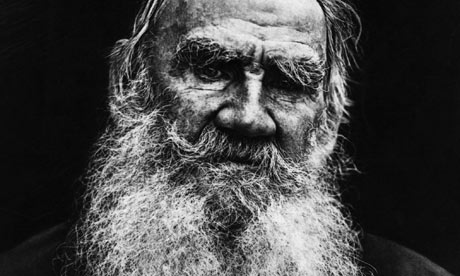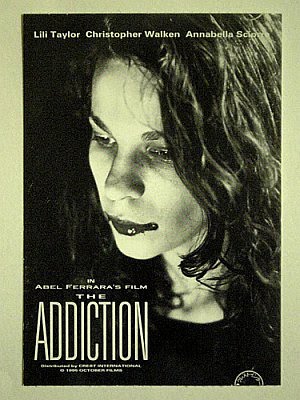
“Oh, these drugs, they play on me these terrible ways,
They don’t pay like they used to pay.
I used to make it day to day.”
—Deerhunter, “Helicopter”
Tolstoy’s gripping short story The Devil chronicles the early life of a promising and potent Evgeny Irtenev, a young man endowed with the fortune to move him into a successful future, as well as the fortitude and wherewithal to make it happen. A visionary of sorts, all of his endowments lead him into a dreamlike pursuit to resurrect “the old life” of his family’s estate and business, an estate that had deteriorated in his father’s stead, and he does so with success, but not without cost. While living on the estate, not yet married, he finds himself entangled in a lusty affair with Stepanida, a peasant woman on the estate, married to a respectable man living away from home. Tolstoy’s illustration of Evgeny’s psychological turmoil throughout the affair brilliantly captures the force of addiction on the human will to conquer it.
Later married, Evgeny returns to the estate to successfully establish a happy home with a supportive, devoted wife. Just a year into married life, though, Stepanida returns, ironically hired by Evgeny’s wife to help in the house. The confliction between Evgeny’s “ought” and Evgeny’s fleshly “want” is almost too painful to bear. The stifled addiction resurfaces but his shame leaves him looking for a dark corner:
“He felt that he was losing his own will, was becoming almost insane. His severity towards himself did not diminish by a hair’s breadth; on the contrary, he saw all vileness of his desires, even of his actions…He knew that he needed only to run into her somewhere close, in the dark, where it was possible to touch her, and he would give way to his feeling. He knew that only shame before people, before her, and before himself held him back. And he knew that he was seeking conditions in which that shame would be stifled by animal passion. And therefore he knew that he was a vile criminal, and he despised and hated himself with all the powers of his soul…Everyday he prayed to God to strengthen him, to save him from perdition; every day he resolved that from then on he would not make a single step, would not look at her, would forget her. Every day he thought up ways to rid himself of this obsession, and ever day he put those ways to use. “But it was all in vain.”
 Evgeny’s ownership of and convictions for his familial responsibilities begin to erode in his own psychological imprisonment. Without even committing the crime, he begins to find that “That which formerly had been important, had given him joy, was now worthless. He unconsciously tried to free himself from business.” Seized by his own devil, Evgeny is left restless, wandering his own garden alone. He leaves that which is most important to him to “wait groundlessly” for something that can give nothing.
Evgeny’s ownership of and convictions for his familial responsibilities begin to erode in his own psychological imprisonment. Without even committing the crime, he begins to find that “That which formerly had been important, had given him joy, was now worthless. He unconsciously tried to free himself from business.” Seized by his own devil, Evgeny is left restless, wandering his own garden alone. He leaves that which is most important to him to “wait groundlessly” for something that can give nothing.
Without spoiling an ending that would be an appropriate supplement to AA’s Big Book, Tolstoy throws down the gauntlet to the reader in parable format:
“And indeed, if Evgeny Irtenev was mentally ill, then all people are just as mentally ill, and the most mentally ill are undoubtedly those who see signs of madness in others that they do not see in themselves.”
For more on this as parable, this is a must-see! (ht JZ)

COMMENTS
One response to “"One Can Sometimes Believe in Sorcery": Dark Places, Addictive Force and The Devil”
Leave a Reply













Thanks a lot, Ethan.
Anyone with a Kindle, or just the free Kindle software, can find The Short Stories of Leo Tolstoy, download the free sample, and read the entirety of The Devil.